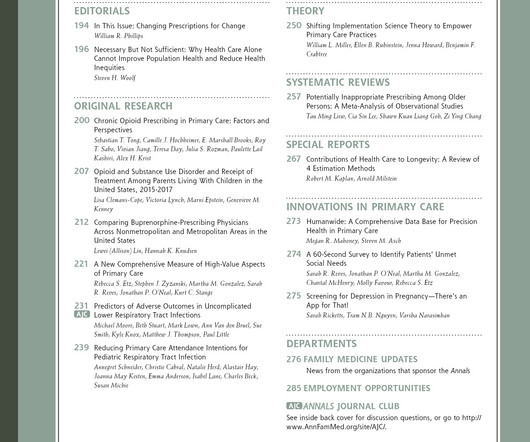Exploring Medical Trainees Perspectives on Narrative Medicine Education and Narrative Humility [Qualitative research]
Annals of Family Medicine
NOVEMBER 20, 2024
Population Studied: Participants were mainly medical students, as well as residents and clinicians. Intervention: We designed an hour-long student-led workshop to present to event attendees, focusing on narrative structures, their powerful influence on the illness experience, and the concept of narrative humility.












Let's personalize your content